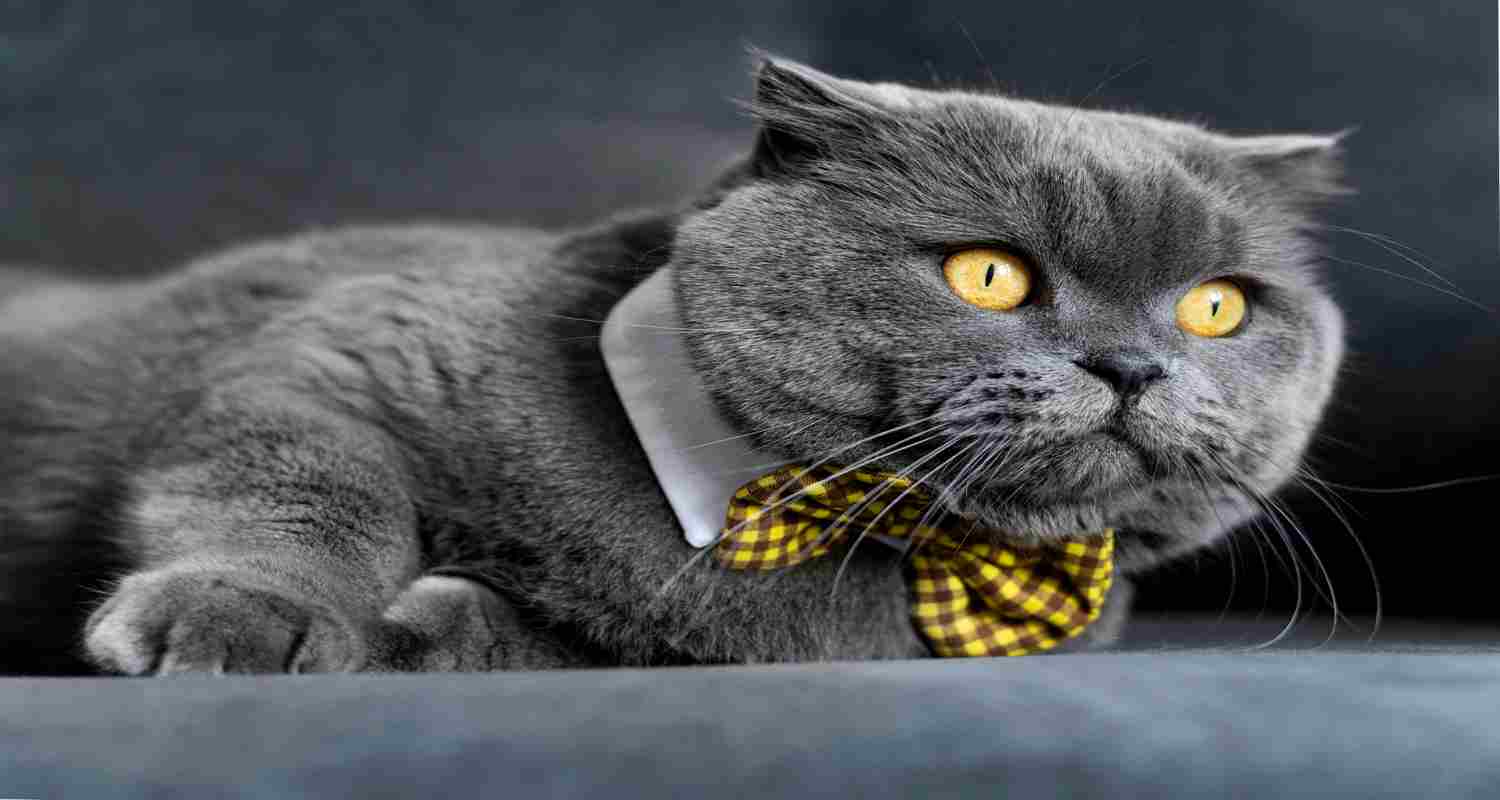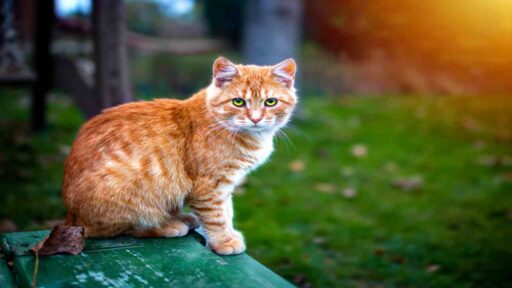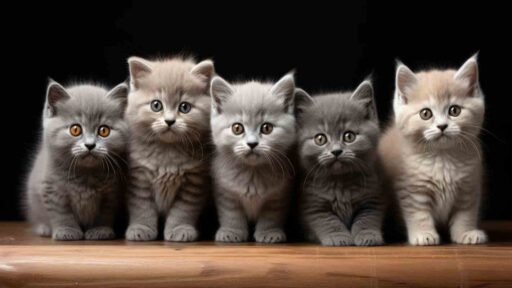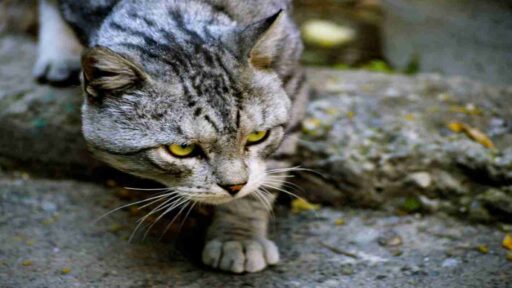The British Shorthair cat is a popular breed known for its robust build, dense coat, and distinctive round face. Originating in Britain, these cats have a calm and affectionate temperament, making them excellent companions. They come in a variety of colors and patterns, with the most well-known being the blue-gray coat. British Shorthairs are known for their independent nature and adaptability to various living environments, making them a beloved choice for cat lovers worldwide
The British Shorthair cat Characteristics
Physical characteristics
The British Shorthair cat is renowned for its sturdy and robust physique, characterized by a muscular build and a compact body. Their legs are strong and well-proportioned, providing them with excellent agility and mobility. Their head is round and broad, adorned with prominent cheeks that contribute to their distinctive appearance. The eyes of the British Shorthair are large, round, and expressive, typically set wide apart and exhibiting a gentle and affectionate gaze.
Their ears are medium-sized, rounded at the tips, and set upright on the head, adding to their charming look. The British Shorthair’s coat is dense and plush, providing them with ample protection and insulation. This short-haired coat lies close to the body, giving the cat a sleek and streamlined appearance. The breed comes in a wide range of colors and patterns, including solid colors like blue, black, and white, as well as various tabby patterns, bi-colors, and calico variations.
The British Shorthair’s coat is often described as luxurious and soft to the touch, inviting cuddles and affection from admirers. Despite their sturdy build, British Shorthairs are known for their gentle and amiable temperament, making them ideal companions for families and individuals alike. With their combination of physical grace and endearing personality traits, British Shorthair cats have won the hearts of cat enthusiasts around the world.
Mental Characteristics
British Shorthair cats are renowned for their distinctive mental characteristics, which contribute to their reputation as beloved companions:
- Gentle Demeanor: British Shorthairs are known for their calm and gentle nature. They often exhibit a laid-back attitude, preferring peaceful environments and enjoying quiet companionship with their human family members.
- Intelligence: While they may not be as active or playful as some other breeds, British Shorthairs are intelligent cats. They are quick learners and can be trained to perform simple tricks or tasks. Their intelligence also enables them to adapt well to changes in their environment.
- Affectionate: Despite their independent streak, British Shorthairs are affectionate cats that form strong bonds with their human caregivers. They enjoy being petted and cuddled, and they often seek out the company of their favorite people for companionship and affection.
- Reserved Demeanor: While British Shorthairs are loving and affectionate with their family members, they can also be somewhat reserved or cautious around strangers. They may take some time to warm up to new people or unfamiliar situations, preferring to observe from a distance before fully engaging.
- Loyal Companions: British Shorthairs are loyal and devoted companions, often forming deep attachments to their human family members. They enjoy spending time with their loved ones and will often follow them around the house, seeking out opportunities for interaction and companionship.
Overall, the mental characteristics of British Shorthair cats contribute to their reputation as gentle, intelligent, and affectionate companions that bring joy and companionship to their human families.
The British Shorthair cat personality treatments
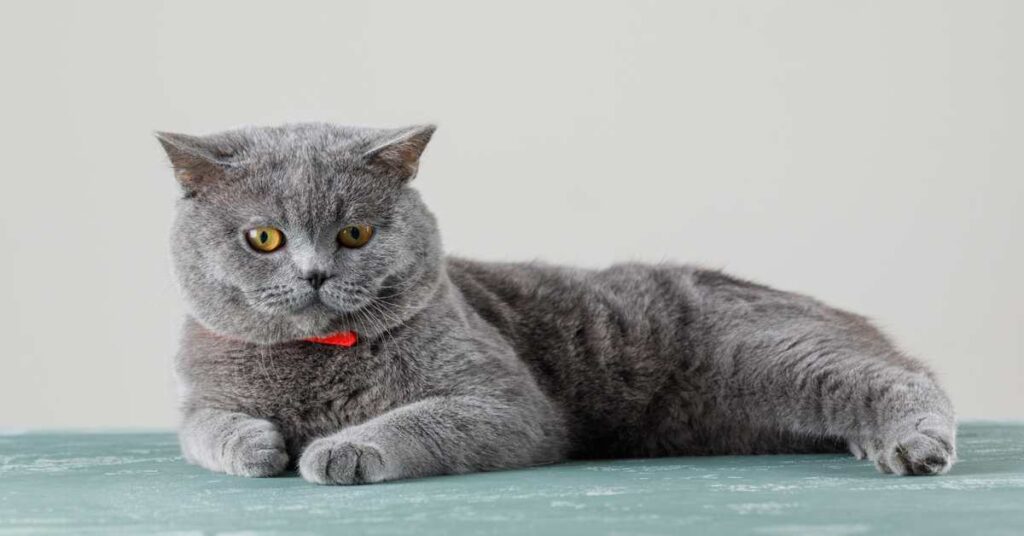
British Shorthair cats have distinct personality traits that can be nurtured through positive treatment and interactions:
- Respect their independence: British Shorthairs value their independence and appreciate having their own space. Providing them with cozy spots to relax and ensuring they have privacy when needed helps them feel secure and content.
- Gentle handling: These cats have a calm demeanor and respond well to gentle handling. Avoiding rough play or sudden movements helps maintain their trust and strengthens the bond between the cat and the owner.
- Regular socialization: While British Shorthairs may be reserved with strangers initially, regular socialization from a young age helps them become more comfortable around new people and situations. Exposing them to different environments and interactions gradually builds their confidence.
- Mental stimulation: British Shorthairs are intelligent cats that thrive on mental stimulation. Providing interactive toys, puzzle feeders, and engaging play sessions helps keep their minds active and prevents boredom.
- Positive reinforcement: Rewarding desired behaviors with praise, treats, or affection reinforces positive behavior in British Shorthairs. This encourages them to repeat those behaviors and strengthens the bond between the cat and the owner.
- Routine and consistency: British Shorthairs appreciate routine and consistency in their daily lives. Establishing a regular feeding schedule, playtime, and grooming routine helps them feel secure and reduces stress.
By understanding and respecting the unique personality traits of British Shorthair cats, owners can provide them with the treatment and care they need to thrive and lead fulfilling lives as cherished companions.
The British Shorthair Cat Care and Diet
Care
Caring for a British Shorthair cat involves several key aspects to ensure their health and well-being:
- Grooming: British Shorthairs have short, dense coats that require minimal grooming. Regular brushing helps remove loose fur and reduces shedding. Additionally, occasional nail trimming and ear cleaning are necessary to maintain their overall hygiene.
- Nutrition: Providing a balanced diet formulated specifically for cats is essential for their health. High-quality cat food, whether wet or dry, should be offered in appropriate portions to maintain a healthy weight. Fresh water should always be available.
- Veterinary Care: Regular veterinary check-ups are crucial for monitoring the health of British Shorthair cats. Vaccinations, parasite prevention, dental care, and routine health screenings should be part of their healthcare regimen.
- Environmental Enrichment: British Shorthairs benefit from mental and physical stimulation to prevent boredom and promote overall well-being. Providing interactive toys, scratching posts, and opportunities for play and exploration helps keep them active and engaged.
- Litter Box Maintenance: Keeping the litter box clean and providing a suitable substrate for elimination is important for British Shorthairs’ litter box habits. Scooping the litter box daily and replacing the litter as needed helps maintain a clean and odor-free environment.
- Indoor Environment: British Shorthairs are well-suited to indoor living but should have access to safe outdoor spaces or supervised outdoor time if desired. Ensuring their indoor environment is safe, comfortable, and stimulating helps meet their needs and prevents boredom.
- Socialization: British Shorthairs thrive on companionship and enjoy spending time with their human family members. Providing regular interaction, affection, and attention helps strengthen the bond between the cat and the owner.
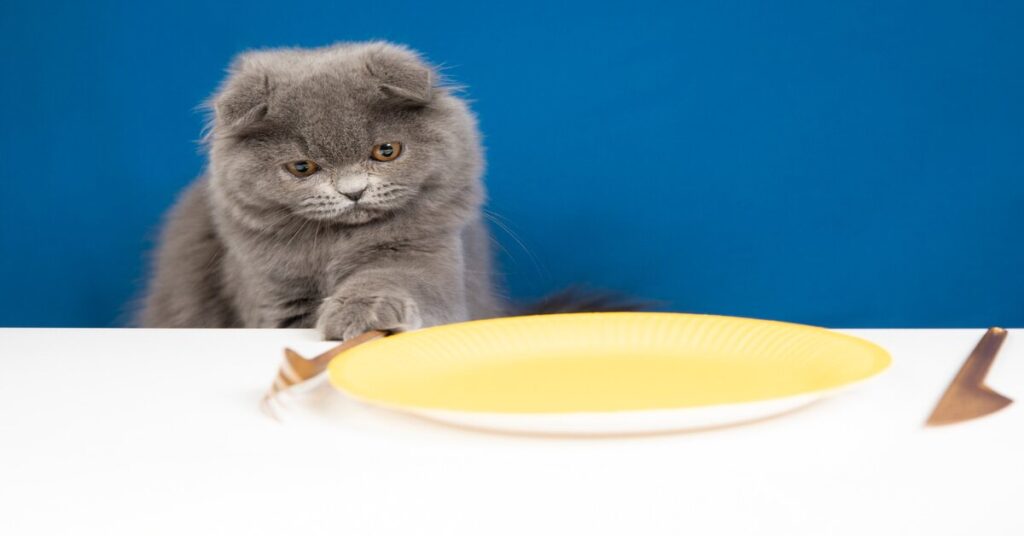
Diet
The diet of a British Shorthair cat should consist of high-quality cat food that meets their nutritional needs. Here are some key considerations for their diet:
- Protein: British Shorthairs require a diet rich in high-quality animal-based protein to support their muscular build and overall health. Look for cat foods with meat or fish listed as the primary ingredients.
- Balanced Nutrition: Their diet should provide a balance of essential nutrients, including vitamins, minerals, and amino acids, to support their overall well-being.
- Moisture Content: While British Shorthairs can consume dry cat food, incorporating wet food into their diet can help ensure they receive adequate hydration, as cats may not drink enough water on their own.
- Portion Control: It’s important to feed British Shorthairs appropriate portion sizes to prevent obesity and maintain a healthy weight. Follow feeding guidelines provided by the cat food manufacturer and adjust portions based on your cat’s age, weight, and activity level.
- Avoiding Harmful Foods: Certain foods can be toxic to cats, including chocolate, onions, garlic, grapes, and raisins. Additionally, avoid feeding them bones, as they can splinter and cause internal injuries.
- Veterinary Guidance: Consult with your veterinarian to determine the best diet for your British Shorthair cat based on their individual needs and any health concerns they may have.
The British Shorthair Cat history and origins
The history and origins of the British Shorthair cat can be traced back to ancient times in Britain. These cats are believed to have descended from domestic cats brought to Britain by the Romans over two thousand years ago. Over the centuries, these cats interbred with native British cats, resulting in the development of the British Shorthair breed as we know it today.
Initially valued for their hunting prowess, British Shorthair cats were prized for their ability to control pests in homes, farms, and ships. Their robust build and thick coats helped them withstand the harsh British climate, making them well-suited for outdoor life.
During the late 19th century, British Shorthairs were selectively bred to preserve and standardize their distinctive characteristics, including their sturdy build, dense coat, and round face. They gained popularity as show cats, with the first cat show featuring British Shorthairs held in 1871 at London’s Crystal Palace.
The breed faced challenges during World War I and World War II, as breeding programs were disrupted and their numbers declined. However, dedicated breeders worked to preserve and revive the breed, leading to its resurgence in the post-war years.
Today, the British Shorthair is recognized as one of the oldest and most beloved cat breeds, admired for its gentle temperament, affectionate nature, and distinctive appearance. While they are no longer primarily employed as working cats, British Shorthairs continue to be cherished as beloved companions in homes around the world, maintaining their place as a symbol of British heritage and feline elegance.
The British Shorthair Cat FaQs
What are some fun facts about British Shorthair cats?
Here are some simple facts about British Shorthair cats:
- They’re one of the oldest cat breeds.
- They inspired the Cheshire Cat.
- They’ve appeared in cartoons.
- Famous people, like Queen Victoria, owned them.
- They have a chunky build.
- They’re friendly and gentle.
- They come in different colors.
- They’re easygoing pets.
- They enjoy playing.
- They love cuddling on laps.
What is the behavior of a British Shorthair?
The behavior of the British Shorthair cat is typically:
- Calm and Relaxed: British Shorthairs have a laid-back demeanor and are known for their calm and relaxed nature.
- Affectionate: They are often affectionate cats that enjoy spending time with their human family members, whether it’s cuddling on the couch or lounging nearby.
- Independent: While they enjoy human companionship, British Shorthairs are also independent cats that appreciate having their own space.
- Playful: Despite their calm demeanor, British Shorthairs can be playful and enjoy interactive play sessions with toys or their human companions.
- Observant: They are known for their observant nature, often watching their surroundings with a keen eye and taking in their environment.
- Reserved with Strangers: British Shorthairs may be reserved or cautious around strangers initially, but they typically warm up to new people once they feel comfortable.
- Curious: They have a curious nature and may investigate new objects or areas in their environment.
- Loyal: British Shorthairs are loyal companions that often form strong bonds with their human caregivers, showing loyalty and devotion to their families.
Do British Shorthairs get along with other cats?
The British Shorthair cat can get along with other cats:
- Introduce them slowly.
- Supervise their interactions.
- Provide separate resources.
- Watch for conflicts.
- Match their temperaments.
- Monitor their behavior.
- Give them time to adjust.
- Be patient with the process.
How much attention does a British Shorthair need?
the British Shorthair cat varies in its need for attention:
- Independent: They can entertain themselves and don’t always need constant attention.
- Affectionate: They enjoy spending time with their owners and appreciate affection and companionship.
- Moderate: While they may not demand attention like some breeds, they still benefit from regular interaction and playtime with their owners.
- Social: British Shorthairs enjoy being part of the family and may seek out attention when they want it.
- Balance: Providing daily interaction and playtime, along with access to toys and enrichment activities, helps keep British Shorthairs happy and content.

